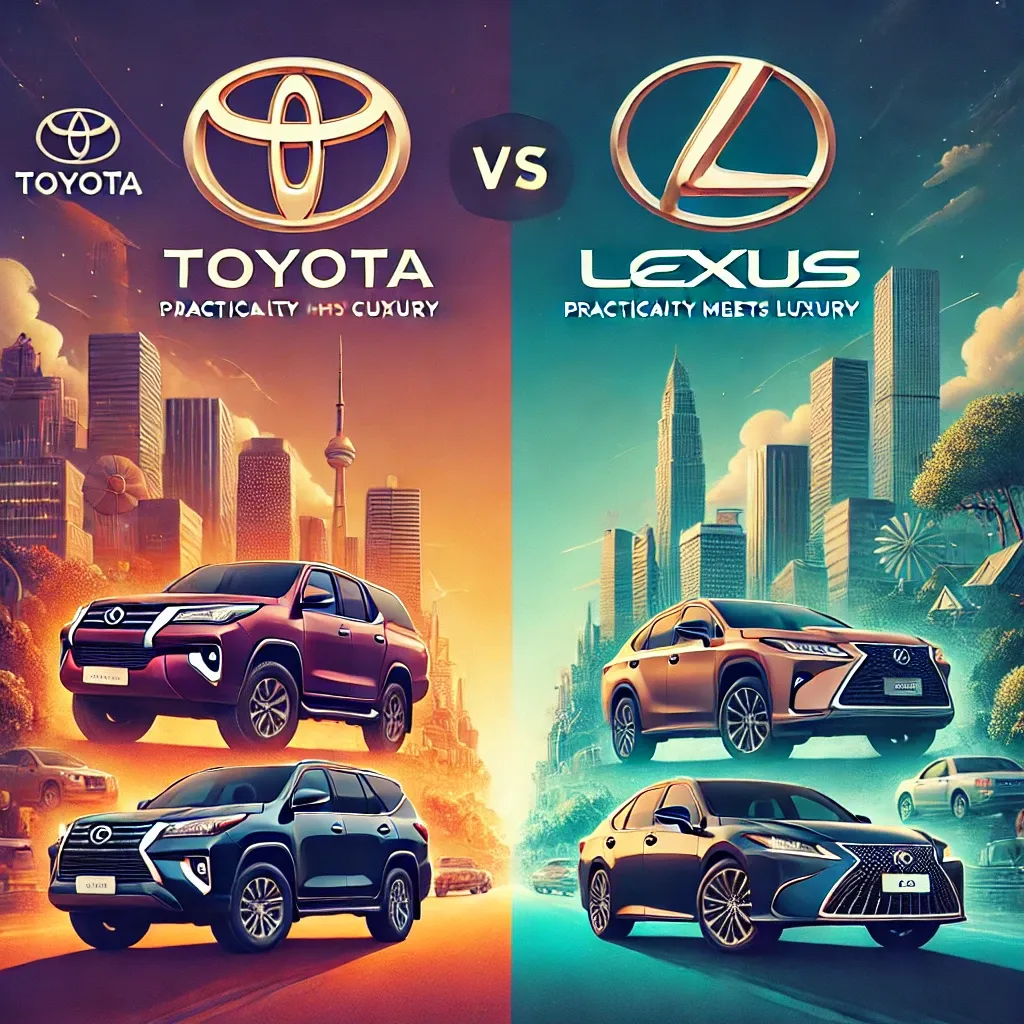Toyota and Lexus are two well-known brands under the Toyota Motor Corporation umbrella, yet they cater to distinctly different audiences. Toyota represents affordability, reliability, and practicality, while Lexus is synonymous with luxury, performance, and premium features. In this post, we’ll explore their differences in-depth, including design, pricing, technology, and competitors, helping you decide which brand aligns with your preferences and needs.
Market Position
- Toyota: Positioned as a mass-market brand offering affordable and reliable vehicles for a wide range of consumers. It appeals to families, commuters, and those prioritizing value and dependability.
- Lexus: Aimed at the luxury market, Lexus provides high-end vehicles with premium designs and cutting-edge technology. It attracts buyers looking for comfort, exclusivity, and performance.
Global Sales Figures (2023)
- Toyota: 10.4 million vehicles sold worldwide.
- Lexus: 1.3 million vehicles sold globally, showcasing its niche focus.
Key Differences
1. Design and Build Quality
- Toyota:
- Practical and functional designs.
- Focuses on durability with robust materials.
- Example models: Corolla, Camry, Fortuner.
- Lexus:
- Elegant, modern aesthetics with attention to detail.
- Premium materials such as leather upholstery and real wood trims.
- Example models: Lexus RX, LS, ES.
2. Performance
- Toyota:
- Prioritizes fuel efficiency and reliability.
- Performance is consistent but not overly sporty.
- Example: Toyota Innova Hycross (186 hp, hybrid efficiency).
- Lexus:
- Offers smooth rides and performance-oriented options.
- High-performance models include Lexus F Sport trims and RX500h.
- Example: Lexus RX500h (366 hp, hybrid performance).
3. Features and Technology
- Toyota:
- Safety-focused technology like Toyota Safety Sense (TSS).
- Features are practical but basic in lower trims.
- India-specific focus on affordability and rugged reliability for diverse road conditions.
- Lexus:
- Advanced features such as Mark Levinson audio systems, adaptive suspension, and advanced driver-assist features.
- Standard luxury elements like heated and ventilated seats.
4. Pricing
- Toyota: Starting prices in India typically range from INR 6 lakh to INR 45 lakh for most models.
- Lexus: Entry-level vehicles start around INR 60 lakh, with high-end models exceeding INR 2 crore.
Competitors
Toyota’s Competitors in India
- Maruti Suzuki: Offers affordability and fuel efficiency.
- Hyundai: Known for feature-rich vehicles.
- Tata Motors: Competes in pricing and rugged models for Indian roads.
Lexus’ Competitors in India
- BMW: Luxury and performance-focused vehicles.
- Mercedes-Benz: Premium brand with advanced technology.
- Audi: Known for sleek designs and innovative features.
- Jaguar Land Rover: Luxury vehicles with a blend of performance and style.
Why Choose Toyota?
- Budget-friendly options.
- Outstanding reliability and resale value.
- Wide range of models for various needs.
- Low cost of ownership.
Popular Models in India:
- Toyota Innova Hycross: Spacious and reliable MPV.
- Toyota Fortuner: Rugged SUV for Indian terrain.
Why Choose Lexus?
- Luxury-focused features and designs.
- High-performance engine options.
- Superior customer service and ownership experience.
- High resale value in the luxury segment.
Popular Models in India:
- Lexus RX: Best-selling luxury SUV.
- Lexus ES: Comfortable and feature-rich sedan.
Conclusion
Choosing between Toyota and Lexus depends on your priorities. If you value practicality, affordability, and reliability, Toyota is the ideal choice, especially for Indian buyers looking for rugged, efficient, and family-oriented vehicles. If luxury, advanced features, and performance are your focus, Lexus will exceed your expectations with its premium offerings tailored for discerning customers. Both brands share Toyota’s legacy of quality, ensuring satisfaction no matter your choice.
Which one will you choose?































